As Steven Spielberg receives an honorary Golden Bear for lifetime achievement at the Berlinale, Screen International asks 13 filmmakers from around the world about his legacy and influence on them as storytellers, and his impact on global film culture
On February 21, Steven Spielberg will be awarded an honorary Golden Bear, the Berlinale’s top prize, for a body of work “unique in the history of international cinema”.
Spielberg, 76, whose latest film The Fabelmans will also screen at the festival, has directed 34 features, beginning with Duel, an expanded version of his 1971 TV movie of the week, following it with The Sugarland Express (1974), which won the best screenplay award at Cannes, and Jaws (1975), which is considered the first summer blockbuster and forever changed the face of cinema.
Since then, Spielberg has, as Spanish director JA Bayona says overleaf, become “synonymous with cinema”, his films defining the moviegoing experience for generations, with classics ranging from Close Encounters Of
The Third Kind (1977), Raiders Of The Lost Ark (1981), E.T. The Extra-Terrestrial (1982) and Jurassic Park(1993) to Saving Private Ryan (1998), Lincoln (2012) and many more.
Nominated for 22 Oscars, including nine times for best director — winning for Schindler’s List and Saving Private Ryan — Spielberg has also been lauded with Ampas’s Irving G Thalberg memorial award in 1987, Venice’s career Golden Lion in 1993 and the American Film Institute’s lifetime achievement award in 1995.
Amma Asante
Belle, A United Kingdom, Where Hands Touch
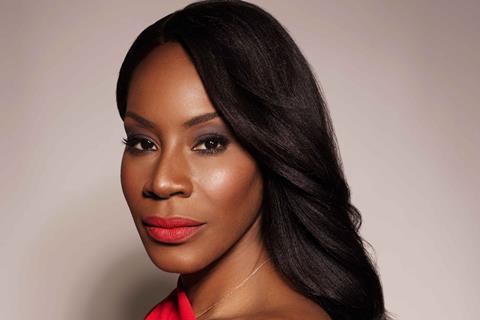
What was the first film of Spielberg’s you remember seeing, or that had an impact on you?
It was probably an Indiana Jones film, but the first one that had a massive impact on me was The Color Purple. The Color Purple really switched me onto him. I can’t remember exactly how old I was, I was probably somewhere in my 20s, and it grabbed me because he took the story arc of a woman of colour, of a Black woman, not a biracial woman, not a woman who had any sort of proximity to whiteness at all, and he placed me and everybody else within her shoes for two hours, and it was a powerful, moving movie. I had never seen anything quite like that and I was always struck by his decision to make that movie. I’ve always thought that without that movie, it would have been extremely difficult for me to go on and make Belle. He had proved white audiences weren’t going to die because they experienced that.
Do you have a favourite Spielberg film?
The Color Purple is up there, but I absolutely loved Lincoln. I was editing Belle when I went to a screening of Lincoln and I remember thinking, “I don’t know how I’m ever going to go back into the edit again. This is so brilliantly crafted, how am I going to do anything that can compete on this level?” I woke up the next morning and that feeling had transformed itself into inspiration. I went into the edit and gave it a damn good go.
How has Spielberg influenced you and your work?
He can take complex ideas and craft them in a way that it’s very easy for wide audiences to swallow or to embrace. Amistad was a difficult film; The Color Purple was a difficult film. One of the elements of inspiration I take from his work is it’s always beautiful, it’s always visually stunning, and it’s difficult when you’re combining a difficult narrative with a beautiful visual — you have to be careful not to glamorise. Filmmaking has a right to be beautiful but it has to be beautiful in an appropriate way, and his beauty is always appropriate to the story he’s telling.
Do you have a favourite scene or moment from his films?
That moment in The Color Purple where Mr Mayor is punched by Oprah [Winfrey]’s character Sofia and she’s beaten afterwards. The level of performance in that scene, and the way it’s blocked and directed, is brilliant. It’s so painful to watch yet I can’t take my eyes off it. It’s complete filmmaking and had a big impact on me.
Have you ever had any personal interaction with him?
I was lucky to be given Empire magazine’s inspiration award and I gave a speech. I started by talking about the filmmakers who had inspired me growing up. I talked about Scorsese, I talked about Spielberg. What I didn’t know was he had walked into the building. When I came off stage, I learned he was there. He probably didn’t even hear it but if he did, I hope he got that this little Black girl in south London was utterly inspired by his work. A bit like a songwriter or musician whose music becomes the soundtrack of your life, Spielberg is the filmmaking equivalent. He stands head and shoulders above them all, at least for my generation.
JA Bayona
The Orphanage, A Monster Calls, Jurassic World: Fallen Kingdom
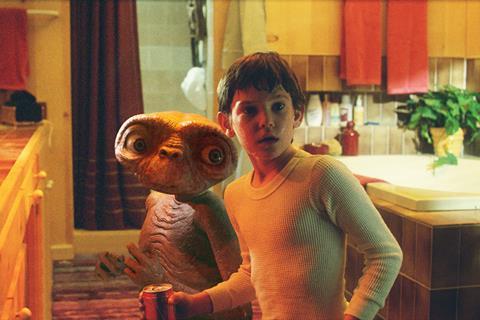
What was the first film of Spielberg’s you saw and when?
I was seven and I was with my twin brother in line to see E.T. The Extra-Terrestrial. I remember all the commotion going on around us. Everyone was taller than us, and my brother and I were crying because E.T. himself seemed terrifying. My parents were trying to convince us to go in, and it was impossible because we couldn’t stop crying. By the time it was our turn, they were sold out, and we had to go home. We came back a few days later when the lines weren’t so long. There was this small window on the door, and I could see the shot of the spaceship shooting through the sky with the rainbow trailing behind it. That’s when I stopped being scared. The film became an obsession for me. It still is.
What’s your favourite Spielberg film and why?
E.T., and I think it’s the film that best sums up his philosophy. It’s intimate but at the same time it exudes a sense of wonder, balancing his most dramatic cinema with his passion for fantasy. It is a story that manages to integrate his childhood and his parents’ divorce in an adventure of humanist background. Cinematically, it’s dazzling, even though it’s shot in a naturalistic way. It’s got it all.
How has Spielberg influenced you and your work?
I can’t think of another filmmaker who has combined artistic and human quality with a more universal reach. I learned to ‘read and write’ films by watching his movies: how to frame a shot, how to move the camera, how to use light and music, all of it. But I also learned that filmmaking is always a personal expression. When you’re deeply in touch with yourself is when you connect with the rest of the world. We see this exceptionally illustrated in The Fabelmans. I think in this sense, we both tell stories that come from our deepest vulnerabilities.
Do you have a favourite scene or moment from his films?
The scene where Elliott shows E.T. his toys is never less than astonishing to me because it’s so simple, yet so profound. That moment of intimacy between two solitary beings, coming from two different planets, perfectly summarises the ability Steven has to create the extraordinary out of the most ordinary.
Have you ever had any personal interaction with him?
Making a massive film like Jurassic World: Fallen Kingdom was very hard work. There were a lot of people telling me how I had to do my job. Often, I felt like I was shooting my first film. Steven was the only one who understood at first what I wanted to do. He gave me the biggest support and I treasure every moment I spent working with him.
Edward Berger
All Quiet On The Western Front
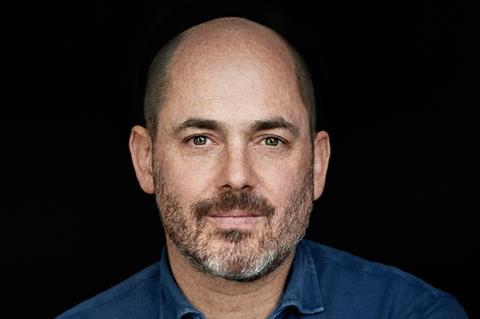
What was the first film of Spielberg’s you saw and when?
E.T., and I was 12. Cinema wasn’t really part of my life yet, and a friend of mine started talking about E.T., and I asked him, “What’s that?” He had a VHS of it. So we watched it and it touched me so much. And when I rewatched it, that was the first time I consciously started analysing how it worked and how it touched me. When my friend first pitched it to me — “It’s about this extra-terrestrial” — I thought, what a stupid idea. But the wonderful thing about America that Spielberg taught me is that anything you can imagine you can put on film, and it becomes real. He believes in cinema so much, and in the story so much, that the extra-terrestrial is completely real, and I wanted that extra-terrestrial to be my friend, to be my brother. In Germany things are much more grounded. You don’t have sci-fi movies because you don’t have the budget, but also you don’t have the imagination. In America, and especially with Spielberg, anything you can dream of, anything you imagine, is a movie. That’s what he taught me.
How has Spielberg influenced you and your work?
He made it unavoidable for any film lover to not follow his movies because they became iconic milestones of the decades. They became iconic memories and experiences. Later, I watched earlier films like The Sugarland Express and Duel and was in awe of those stories. I was also in awe of the breadth of stories he was able to tell. He made Jurassic Park and Schindler’s List at the same time. I read an interview with Sam Mendes after he made American Beauty. He had met Spielberg and asked, “What advice can you give me?” Spielberg said, “Wear comfortable shoes.” I thought that was really valuable and I stick to that every day when I go to set. I think of Spielberg while I’m putting on my sneakers.
Do you have a favourite Spielberg film?
That’s a difficult one to answer. I could say The Sugarland Express is my favourite but let’s pick Saving Private Ryan, because it’s the one I consumed the most in the last years in preparation for making All Quiet On The Western Front. It became my favourite because I found it so masterfully made.
Do you have a favourite scene or moment from his films?
It’s a very silly cut, and I wouldn’t call it my favourite, but it’s one we analysed for All Quiet. It’s during the bridge battle [in Saving Private Ryan] where Barry Pepper is up on the clock tower and there are tanks going through the streets and they have these handmade bombs that stick to the tanks, and we got inspired by that for our tank battle scene. There’s one guy who explodes and becomes this vapour of blood. I showed it to my stunt co-ordinator, VFX person and SFX person, and said, “How did they do that?” We analysed it and got inspired to do it in our movie.
Have you ever had any personal interaction with him?
I was suggesting to Netflix when they asked me, “Who do you want as a host for your movie [at an awards screening]?” My first answer was Steven Spielberg, because I thought, let’s reach for the stars, and he made one of the most iconic war movies of the last decades. They said, “This year it might be difficult because he has his own movie in the running.” So I was a little bit disappointed. But my hope is one day he’ll watch All Quiet and we can talk about it, and I can ask him many questions of how he masters what he does.
SS Rajamouli
RRR
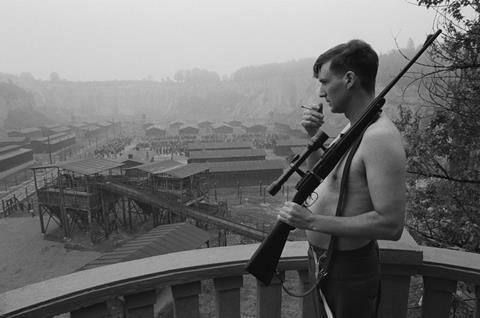
Do you have a favourite Spielberg film?
Schindler’s List.
How has Spielberg influenced you and your work?
I’ve been a fan of his work since childhood. Much later, as I started understanding the language of film, I could see what a master craftsman he is. Changing genres from film to film, building creative tension from writing to shot making, creating worlds with impeccable detail, every aspect of his filmmaking is an inspiration.
Do you have a favourite scene or moment from his films?
Jurassic Park — the water ripples in the glass as the ground trembles for the T-Rex footsteps. Munich, when Hans says the following dialogue: “I wish I had let you close up her housecoat,” in regret. And Schindler’s List, Ralph Fiennes shooting prisoners while nonchalantly taking a leak.
Have you ever had any personal interaction with him?
I’ve been waiting to meet him for a long time and I met him finally during my trip to the US this January. I was starstruck, so all I remember was him wishing me good luck for my future.
Susanne Bier
Brothers, In A Better World, Things We Lost In The Fire, Bird Box
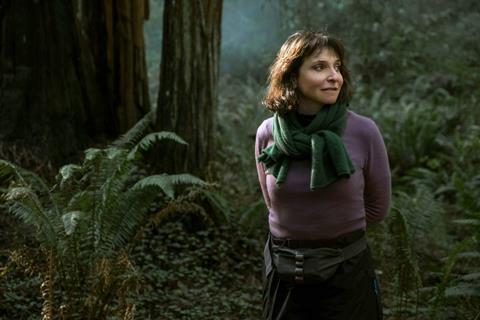
What was the first film of Spielberg’s you saw and when?
I was late to movies, so I think Jaws was my probably first one. The next was E.T., and I had no idea a movie could do that. I cried for hours. To have a movie that could be so profoundly emotional just talks to his genius.
Do you have a favourite Spielberg film?
E.T. is the one I come back to most frequently.
How has he influenced you and your work?
Spielberg has influenced everybody in the industry but his impact goes beyond the film industry to a wider cultural impact. Not all of his movies are gentle, but there is a gentleness in his storytelling which doesn’t come from being cautious but comes from being superior. If you are powerful, you don’t have to scream. He must be, at this point in time, the only director we can say, “What are your 10 favourite Spielberg movies?” He’s such a monumentally important director. The secret is that he is so skilled and technically innovative but he has never let go of his curiosity, his innocence. There is an innocence to his being obsessed with certain stories and certain themes. Hidden within that insanely visionary, brilliantly experienced director is a little boy who crops up and ensures the unexpected and unpredictable.
Have you ever had any personal interaction with him?
We have been governors at Ampas together so we’ve had several conversations, mostly about issues relevant for the Academy. He is incredibly polite and gentle and quietly humorous. I think he probably has an edge to him; I don’t think you want to annoy him. But whenever I have met him, he has been super charming, personable and friendly.
Sophie Hyde
Animals, Good Luck To You, Leo Grande
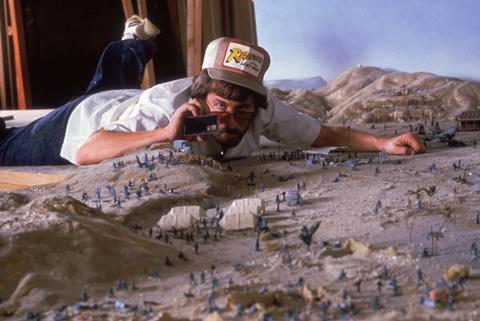
What was the first film of Spielberg’s you saw?
I think it was Raiders Of The Lost Ark, which was so much of that era of filmmaking. It was so seminal, although I haven’t watched it since I was a kid.
What is your favourite Spielberg film?
E.T., as I feel like I’ve always known that film and I remember the emotion of it more than the story. When my 17-year-old was little, they would want to watch it often and, near the end, they would burst into tears and run into the bedroom sobbing, “It’s just so sad”. They used that film when they wanted that big cathartic release.
Has Spielberg influenced you and your work?
He’s not someone I look at like that. He’s more of a legend — the idea of being a film director. That said, it’s empathy and building emotion that he’s so good at and I always try for that. He’s made so many films it’s ridiculous. And they’re all so varied. It’s hard to believe the same person made them all.
Do you have a favourite scene from his films?
Elliott letting E.T. go home. That scene is so beautiful, so bittersweet. A friendship in which someone helps their friend leave so the friend can get what they want, thus dissolving the friendship, is very striking.
Gurinder Chadha
Bend It Like Beckham, Viceroy’s House, Blinded By The Light
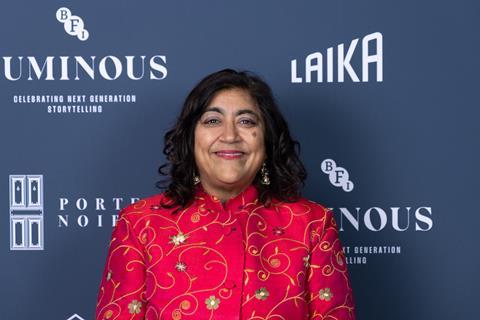
What’s your favourite Spielberg film and why?
Schindler’s List. I read it took him a long time before he was ready to make that film, and I understand that because with my film Viceroy’s House, on the partition of India, which my family lived through, I wasn’t ready to tell that story for a while. Schindler’s List is masterful. The end, when all the survivors put a stone on his grave, was genius, a visceral moment about the power of storytelling to bring us all together in a unified display of emotion, regret, pain and suffering.
What was the first Spielberg film you remember seeing, and what impact did it have on you?
Jaws, which was horrific. I saw it when it came out [1975] and I remember being in the cinema with all these people when the girl with the leg comes out, and everyone jumped up in their seats, and then laughed. That was master story telling. Even at that time, I did think the shark looked a bit pants, but it didn’t matter because the storytelling was so great. It was terrifying; I was glad I didn’t live in America. To this day, I’m very nervous of beaches in America because of that movie.
How has Spielberg influenced you and you work?
The fact you can be personable and emotional and hugely commercial. You can make films about ordinary people and dysfunctional people and events that are out of this world, literally, in a commercial way, but also very human and personable. That combination of a massive canvas, but at the same time just ordinary. That’s why I related so much to his latest film The Fabelmans. Having lived with Steven Spielberg’s work for all these years, seeing him tell that story was very touching.
Do you have a favourite scene or moment from his films?
One I absolutely love is in Close Encounters Of The Third Kind. That idea of using the five tones — I always thought, “Oh my goodness, genius,” because it defied language. When he cuts to millions of people in India, on that mountain, and they’re all repeating the five tones — that was a moment where I just went, “Wow.” I felt seen, but at the same time, it was this big Hollywood director using India in a very interesting way. He used India’s spirituality, and non-verbal language, to show a global thing was happening. Whether it’s through emotions, storylines, or how he chooses to tell the story, he’s marvellous at bringing in the world. You always feel like it’s a world event, not an American event.
Have you ever had any personal interaction with him?
I was in India for work, and Anil Ambani [former Reliance Group chairman] was throwing a big party for him. It was a very Bollywood, glitzy affair. Steven was being wheeled round the ‘who’s who’ of Bollywood cinema. He was being very gracious and shaking hands. He didn’t know who anyone was but knew they were all important. I was talking to Aishwarya Rai [Bachchan] from Bride & Prejudice; he was led over, and introduced to the most beautiful woman, Aishwarya. I was standing behind, not glamorously dressed, and I said, “Oh Steven, I’m going to say hello, my name’s Gurinder, I’m a British filmmaker, I’ve just crashed your party. I made a film called Bend It Like Beckham.” And he went, “Finally, a film I know!” It was really sweet. But it says a lot about him; he was gracious going round everybody. He really is about film and culture.
Luca Guadagnino
I Am Love, Call Me By Your Name, Bones And All
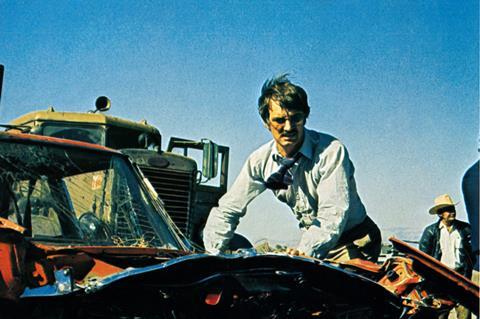
What was the first film of his you saw and when?
E.T. — I was 11 and it struck me. I clearly remember also Something Evil, a horror TV movie he made right after Duel.
Do you have a favourite Spielberg film?
Empire Of The Sun — I often go back to it. [The way] he deals with cruelty, pain and loss at the same time is marvellous. It seems to me a giant homage to [Roberto] Rossellini.
How has Spielberg influenced you and you work?
He influenced me in the way I’m not afraid of clear cinematic gestures. If you think of the Spielberg signature shot, moving towards a character who is approaching a mystery outside of the frame with a light crowning him from behind and the music rising, that’s a very clear maximalist gesture, and I humbly think that’s influenced me.
Do you have a favourite scene or moment from his films?
That moment in Jurassic Park when the kids are chased by velociraptors in the kitchen. There you find the very idea of cinema as the place of mystery, dream and nightmare that comes straight from German expressionism.
Have you ever had any personal interaction with him?
Yes, at an Oscars lunch organised by the Academy in 2018. At the end a picture was taken and he was positioned beside me. I said, “Good evening.” He replied, “Good evening.” And that was it.
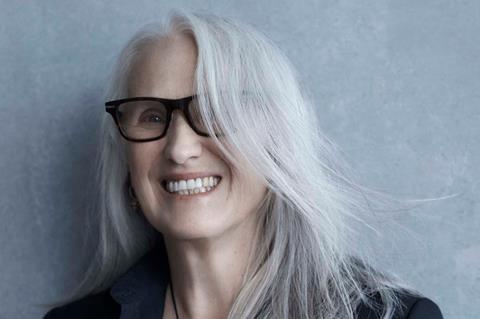
Jane Campion
The Piano, The Power Of The Dog
He’s so popular and beloved by everyone. All manner of filmmakers scramble across cinema seats, including me, to give Steven a grin and a handshake.
I’ve seen with these eyes so much geek love for him. He’s a cinema-making phenomenon and he’s humble, really he is, and goes out of his way to be inclusive and kind.
Carla Simon
Summer 1993, Alcarràs
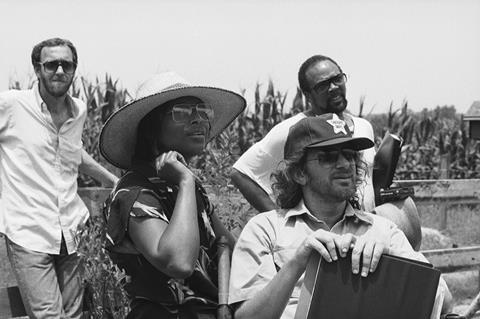
What was the first film of Spielberg’s you saw and when?
Most likely E.T. when I was very little. It’s funny to think how well I remember it, despite the years that have gone by. Spielberg has coloured our imagination so powerfully. I bet that so many of us when we think of aliens, we think they must look like E.T. I saw this film at home since it was released before I was born. I remember I was fascinated by it, and that I also got a bit scared too. Later, in my first year at university, when I started watching a lot of cinema, I remember the impact of seeing Schindler’s List.
What’s your favourite Spielberg film and why?
I love The Color Purple and how it moved me. I remember the scene when Margaret Avery’s character sings the blues to Whoopi Goldberg’s Celie. ‘Sister’ has resonated throughout my life.
How has Spielberg influenced you and your work?
As a director who likes working with children, I have revisited some scenes from E.T. and I’m in awe with the work of Henry Thomas. There’s a video that was posted online of his casting session that I have watched several times, and it leaves me speechless every time. No wonder you can hear Spielberg at the end of the test saying, “Kid, you’ve got the job!” We have different styles when it comes to directing children but there is always truth in his child actors; he knows how to trigger the kids’ imagination to help them get into their roles. He is a master storyteller that knows how to talk, to look, from the point of view of children. As a filmmaker, I’m interested in his classical approach to storytelling combined with skilful work on the emotional level. When you look back at his filmography, you think of his films but also how you felt watching them. That’s priceless.
Do you have a favourite scene or moment from his films?
Beyond the emotion of the scene I mentioned in The Color Purple, I watched Duel again when I was working on Alcarràs. Arnau Vilaro, the co-writer of Alcarràs, and I revisited the film in search of inspiration for how he works the tension there, how he shoots the driving scenes, the threat of technology. We used it for the scene in which the lorries carrying the solar panels arrive.
Have you ever had any personal interaction with him?
I haven’t had the pleasure of meeting him in person. If I ever do, I would like to thank him for all the films and inspiration he has given us. Even if my style of filmmaking is quite different to his, at the end of the day, I realise how much he has influenced me, how much he has influenced all of us.
Charlotte Wells
Aftersun
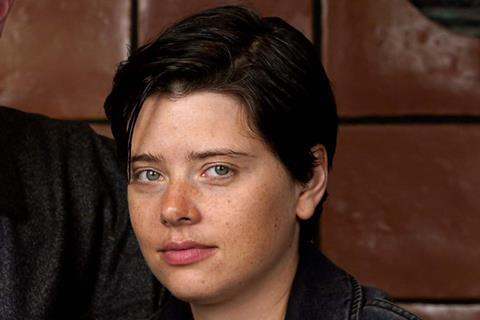
What was the first film of Spielberg’s you saw and when?
It was Jurassic Park when it came out in the cinema. I would’ve been about six.
What’s your favourite Spielberg film and why?
For nostalgic reasons, it’s between Jurassic Park and Indiana Jones And The Last Crusade, which is the film of his I’ve seen the most. It’s also the film that feels so tied to watching with family. [We] took a family holiday to Egypt and we went across the water for a day to Jordan, and I have a video of my mum pretending to ride a horse as she gallops through Petra humming the Indiana Jones theme song.
How has Spielberg influenced you and your work?
As a kid, he was the only director whose name I ever could have articulated, so ubiquitous was his presence; even with no idea what a director did, you could name Spielberg as one. He played a seminal role in feeling consumed by the magic of cinema at a young age, and also in providing a face for the creator of films. He allowed a line to be drawn between the film itself and a person at its helm, in a way that otherwise felt invisible at that time to me. Before you really have an awareness of what filmmaking is, Spielberg still stood out as a creator and that kind of thing seeps into your consciousness. There is something so joyous about films that reach so many people and that people have such positive memories of watching and experiences around. And because he has been so prolific and working for such a long time, you can point to those moments, not just at age six but at age 16 when Minority Report came out, and you see films that provide more to talk about and the basis of conversations as a teenager and going forward.
Do you have a favourite scene or moment from his films?
I think the moment that Indy steps onto that invisible bridge in Last Crusade is up there among my favourite moments. It’s one of those images that I think of a lot, in terms of holding images from films and allowing that to represent something more; that is one that has always been firmly close to mind.
Have you ever had any personal interaction with him?
No, but I was at [an awards event in the US] where he was there, and I was very aware I was in a room with Steven Spielberg. I had to get up and speak, and the idea he was also in the room, [and] I’m occupying these spaces with these people at the moment, it’s very hard to reconcile with them being in a chair, in a room, in flesh and blood. He is a living legend and it’s been strange to coincidentally have made a film that is also about family history and my past in a moment that he has also chosen to delve into this period of his own life [with The Fabelmans]. To then see our films written of in the same articles and sentences has been a surreal experience.
Edgar Wright
Shaun Of The Dead, Hot Fuzz, The World’s End, Baby Driver, Last Night In Soho, co-writer of The Adventures Of Tintin: The Secret Of The Unicorn
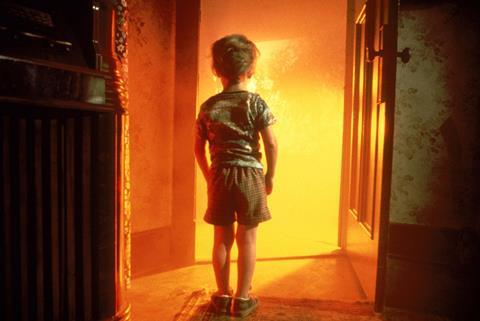
What was the first film of Spielberg’s you saw and when?
It was the re-release of Close Encounters Of The Third Kind in 1980 and I must have seen it in one of the cinemas in Westover Road in Bournemouth. The opening titles alone made me tingle with anticipation. It hasn’t worn off.
What’s your favourite Spielberg film and why?
It wavers between Raiders Of The Lost Ark and Close Encounters, with Jaws and E.T. not far behind. It changes daily, but, for now, let’s say Close Encounters Of The Third Kind, which is about as magical and hopeful as science fiction gets. No matter how many times I see it, I’m agog with wonder, much like Richard Dreyfuss in the movie.
How has Spielberg influenced you and your work?
I am of the generation that first went to the cinema when Spielberg was in the middle of his first incredible streak of iconic hits. Seeing Raiders at age seven was a huge moment for me, as it was one of the first films where I was aware of who directed it and became curious as to how they made the film. More recently, he’s a director I refer to constantly as a master of staging and blocking. Any Steven Spielberg film is a miniature film school to study the different ways of covering a scene, always with economical and stylish coverage, as well as masterful visual storytelling. Watch a film of his with the sound turned off and study a genius at work.
Do you have a favourite scene or moment from his films?
Raiders Of The Lost Ark is pretty much a compendium of favourite scenes: the temple opening, the drinking contest, the Well of Souls scenes, the flying wing, the truck chase — it’s pound for pound an unbeatable piece of work. But let’s highlight a less beloved film and talk about the opening scene of Indiana Jones And The Temple Of Doom, which is just killer. The Kate Capshaw Mandarin cover of ‘Anything Goes’, which segues into a Busby Berkeley sequence which then leads into a very tense scene involving a lazy Susan and caps it off with a fight on a nightclub floor over an antidote and some diamonds, with spilled ice cubes and party balloons confusing the issue. It’s a hell of an opener and I salute the sheer brio of it all.
If we’re going for one moment, let’s say the soaring John Williams score and cuts into Elliott’s face just before they take off in the E.T. roadblock scene. And one shot — little Cary Guffey framed against the orange wall of light outside his kitchen door in Close Encounters. Iconic.
Have you ever had any personal interaction with him?
I’m fortunate to say, many times; he’s long been a supporter of my work and what better call could you get than one from Steven Spielberg? I did work for him once, when writing on Tintin. I felt like a real teacher’s pet when coming up with ideas and in one story meeting, I pitched a visual joke and he said, “I love that, Edgar, it’s very cinematic.” Could retire after that, to be honest.
Thomas Vinterberg
Festen, The Hunt, Another Round
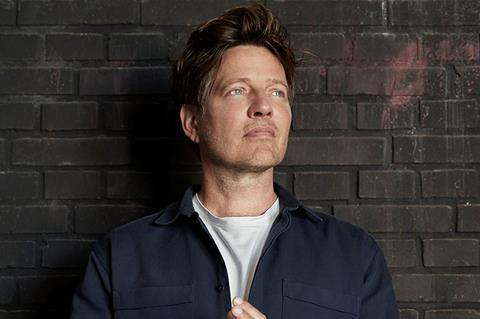
Vinterberg recalls a letter he received early in his career, sent by Spielberg after watching the Danish filmmaker’s acclaimed 1998 feature Festen. The film told of a patriarch’s 60th birthday party, during which some unpleasant family truths are laid bare.
“It was a typewritten letter and it started off really well,” says Vinterberg. “The first line was something like, ‘This is the best film I’ve ever seen…’ But then the second line came, ‘About this topic.’
“For a split second I felt on top of the world, but the second line was a little disappointing,” adds Vinterberg, with a laugh. “I guess there weren’t a lot of movies about this topic.”
The letter was not the only overture the young Dane received from Spielberg at that time. “He invited me to meet him in his office, and he was very nice, very kind,” say Vinterberg, who was also given some powerful advice on one of his trips to Los Angeles. “He said, ‘I think you should stay home [in Denmark] and keep doing what you’re doing.’ That was quite generous of him.”
The young Vinterberg also had a proposal for Spielberg. “I said, ‘If we invited you to make a Dogme film, would you do it?’ He laughed and smiled, but obviously it didn’t happen. We invited him because we admired his work so much, and still do. We also asked Scorsese.”
The rules and restrictions of Dogme 95 included using hand-held cameras, existing sound and light and shooting on location without props.
Vinterberg would still love to see Spielberg tackle a Dogme. “I think he could have fun with the idea,” he says. “He’s such an amazing filmmaker and he could have proven how crafty he is with these rules. It was a great moment just to propose it to him.”
Vinterberg grew up loving Spielberg’s movies. He remembers being “blown away” by his first viewing of Close Encounters Of The Third Kind, and says even today E.T. remains “groundbreaking”.
He also describes himself as “obsessed” with scenes in The Fabelmans in which young Sammy “is making movies with nothing as kid. It shows how well‑crafted even his earliest movies were. I found it heartbreaking and very moving.
“His craft is something that inspires me,” Vinterberg concludes. “James Bond wasn’t my hero when I was growing up, Spielberg was. He was everything Hollywood is supposed to be — there’s this glow around him.”
Interviews by Elisabet Cabeza, Ben Dalton, Sandy George, Emilio Mayorga, Wendy Mitchell and Mark Salisbury











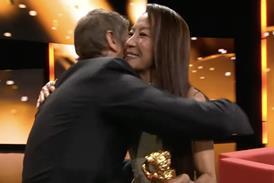






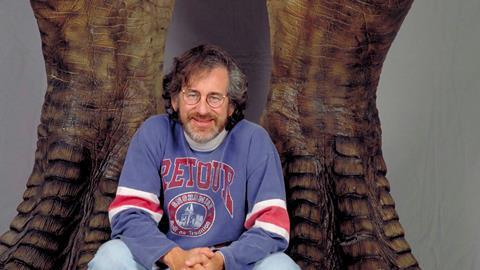






No comments yet